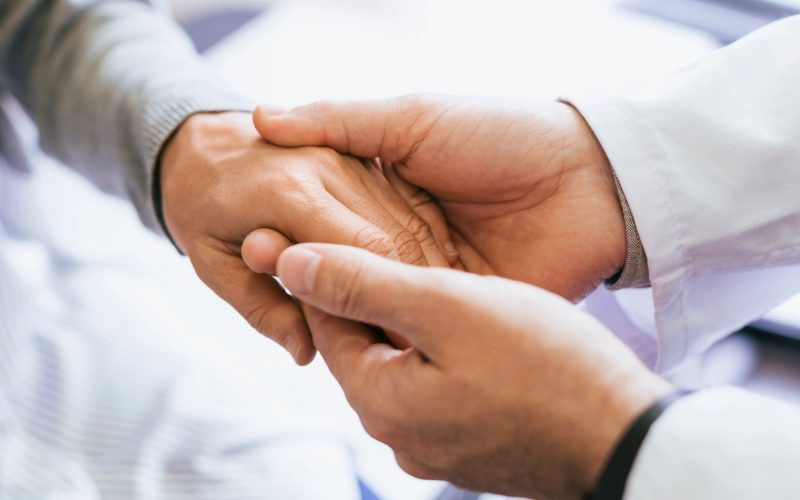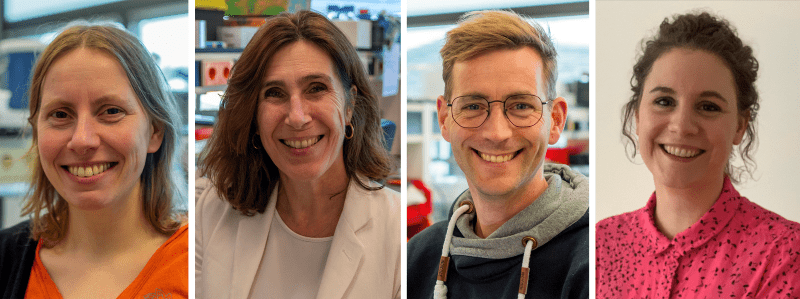Researchers at the Center for Translational Immunology (UMC Utrecht) have recently secured two grants to support an innovative new line of research: developing human skin models that mimic systemic sclerosis (SSc) in vitro. The ultimate goal of these projects is to ensure that the models are scientifically sound, clinically relevant, and suitable for testing of candidate therapies.
Systemic Sclerosis (SSc) or scleroderma is a serious autoimmune disease that causes widespread fibrosis, severely impacting organ and joint function and significantly raising the risk of death. Currently, treatment options are limited and invasive, with stem cell therapy available to only a small subset of patients due to high risks. SSc affects an estimated 80,000 patients across the EU and remains a disease with high unmet medical needs due to an incomplete understanding of its underlying pathology. These new grants and the collaborative projects that they support are crucial steps toward unraveling disease mechanisms and paving the way for new treatments.
These projects represent a new research line in the inhibitory receptor lab led by Prof. Linde Meyaard and Dr. Michiel van der Vlist at the Center of Translational Immunology (CTI), aiming to develop human models that faithfully represent inflammatory disease for preclinical drug development. The basis for these models was introduced Dr. Maaike Waasdorp, who is an expert of fully human reconstructed skin models at the CTI and will lead the experiments in the lab.
Left-to-right: Maaike Waasdorp, Linde Meyaard, Michiel van der Vlist and Julia Spierings
The RESET (Restoring the balance in systemic sclerosis by targeting macrophages) project focuses on finding potential therapeutic targets for SSc. Researchers will aim to break the vicious cycle of fibrosis by targeting immune cells. Specifically, they will investigate the role of macrophages in tissue repair and how disrupted collagen deposition in SSc affects cell signaling. By testing specific agonists that target macrophages in a newly developed 3D human skin model of SSc, the team hopes to uncover whether these agonists have therapeutic potential. RESET has a duration of 36 months and has with a budget of € 500,000.
The COMPASS (Complex Model(s) for Pre-clinical Assessment in Systemic Sclerosis) project, a collaboration with scientists at Radboudumc, aims to fill a critical gap in drug development for SSc. One major hurdle in developing new drugs for SSc is the complex interplay between different cell types (immune cells, skin cells, and blood vessel cells) that drive the disease process. Researchers at UMC Utrecht and Radboudumc are now pooling their expertise to build a more comprehensive and translational 3D model. Utrecht’s model already combines skin cells and innate immune cells, while Nijmegen’s model includes adaptive immune cells. By integrating these elements and adding blood vessel cells, the team aims to create a complete, human-relevant model of SSc. COMPASS has a duration of 4 years and has with a budget of € 1.3 million.
Belgian biotechnology company argenx, with its proven track record in drug development for autoimmune diseases, will act as an end user of these models. Their involvement ensures that the models are scientifically sound, clinically relevant, and suitable for real-world testing of candidate therapies. Dr. Julia Spierings, rheumatologist in the UMC Utrecht specialized in the treatment of SSc, is involved in these projects as clinical scientist. In addition, patient representatives from UMC Utrecht and Radboudumc will be actively involved through regular meetings with researchers, offering their perspectives and feedback throughout the project. Both grants are part of Health~Holland’s TKI construction. The RESET grant was awarded through UMC Utrecht’s internal TKI round, while the COMPASS grant came through a ZonMw call in collaboration with the collaborating Dutch Health Funds.

